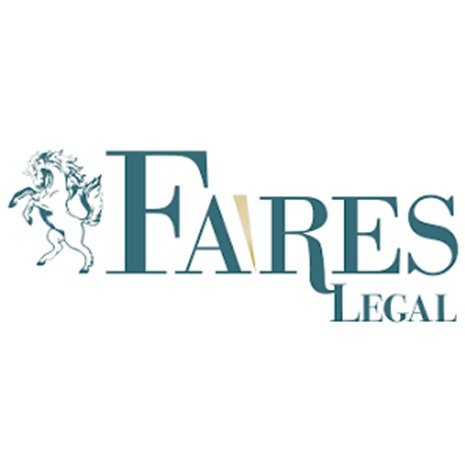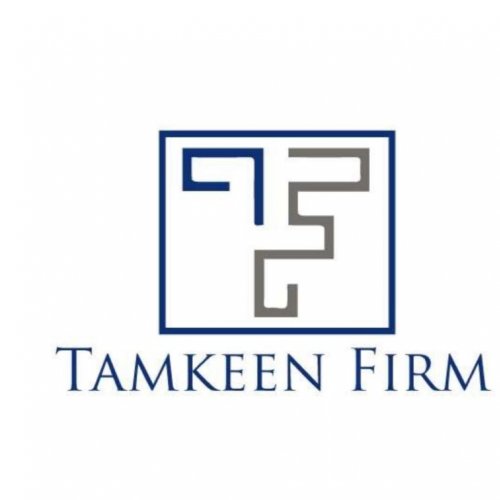Best Corporate Governance Lawyers in Libya
Share your needs with us, get contacted by law firms.
Free. Takes 2 min.
Or refine your search by selecting a city:
List of the best lawyers in Libya
About Corporate Governance Law in Libya
Corporate governance in Libya refers to the framework of rules, practices, and processes by which companies are directed and controlled. It is primarily concerned with balancing the interests of a company's stakeholders, including shareholders, management, customers, suppliers, financiers, government, and the community. In Libya, corporate governance has become increasingly important, particularly as the country continues to integrate with the global economy and encourage both private sector growth and foreign investment.
Libyan corporate governance regulations are anchored in the Libyan Commercial Code and various laws governing joint stock companies, limited liability companies, and public enterprises. The legal environment is evolving, with ongoing reform efforts aimed at promoting transparency, accountability, and ethical conduct in business operations.
Why You May Need a Lawyer
Engaging a lawyer with expertise in Libyan corporate governance can be crucial in several situations. Common scenarios include:
- Starting or registering a new business entity, such as a joint stock or limited liability company.
- Advising on board structure, directors' roles and responsibilities, or shareholder rights.
- Drafting or reviewing contractual agreements, bylaws, or corporate charters.
- Handling cases of shareholder disputes or conflict resolution between stakeholders.
- Ensuring compliance with Libyan corporate laws and reporting obligations.
- Managing mergers, acquisitions, or restructuring of companies.
- Addressing allegations of mismanagement, fraud, or ethics violations.
- Guiding foreign investors through local corporate regulations and investment protections.
Legal assistance ensures your business structure complies with local laws, protects your interests, and reduces the likelihood of costly legal disputes.
Local Laws Overview
Libya’s legal framework for corporate governance primarily stems from the Libyan Commercial Code, Law No. 23 of 2010 regarding commercial companies, and the Central Bank and financial regulatory laws. Some key aspects include:
- Company Types and Formation: The law defines various types of companies, including joint stock, partnership, and limited liability companies, each with specific formation and governance requirements.
- Board of Directors: Companies must have a board of directors, with clear stipulations on appointment, duties, minimum number of members, qualifications, and liability for company decisions.
- Shareholder Rights: The law protects shareholder rights, including voting, dividend entitlement, and the ability to participate in general meetings.
- Disclosure and Reporting: Companies are obliged to maintain transparency through regular financial reporting, submission of annual returns, and timely disclosures to relevant authorities.
- Conflict of Interest: Directors and managers are prohibited from engaging in activities that present a conflict of interest without prior approval from the board or shareholders.
- Regulation and Oversight: Regulatory bodies such as the Ministry of Economy, General Authority for Investment Promotion, and Central Bank (for financial institutions) oversee compliance with corporate regulations.
It is important to stay updated with ongoing reforms as the corporate governance environment continues to evolve to meet international standards.
Frequently Asked Questions
What is corporate governance?
Corporate governance refers to the system of rules, processes, and practices by which a company is managed and controlled, ensuring accountability and fairness in its relationships with stakeholders.
What are the main laws that regulate corporate governance in Libya?
Key regulations include the Libyan Commercial Code, Law No. 23 of 2010 regulating commercial companies, and additional directives from the Ministry of Economy and Central Bank (for financial entities).
Do foreign investors need a local partner to start a business in Libya?
In most cases, Libyan law requires that at least 51 percent of a company be owned by Libyan nationals, though there are exceptions for certain sectors and under specific investment laws.
How are board members appointed in Libyan companies?
Board members are typically elected by the shareholders during general meetings in accordance with the company’s articles of association and Libyan law.
What are the duties of directors under Libyan law?
Directors have a duty to act in good faith, with care and diligence, avoid conflicts of interest, and ensure the company complies with applicable laws and regulations.
Are companies in Libya required to conduct annual audits?
Yes, most companies, particularly joint stock and larger limited liability companies, are required by law to have their accounts audited annually by certified auditors.
What happens if a company fails to comply with corporate governance laws?
Non-compliance can result in penalties, fines, or even suspension or closure of the business. Directors may be held personally liable for certain breaches.
How are shareholder disputes resolved?
Shareholder disputes can be addressed through negotiation, mediation, or legal proceedings in Libyan courts, depending on the nature and severity of the conflict.
Can companies adopt additional internal governance rules beyond what the law requires?
Yes, companies are encouraged to develop their own internal policies and governance structures, provided these do not conflict with Libyan law.
What role do regulatory authorities play in corporate governance?
Regulatory authorities oversee compliance, set minimum standards, approve company registrations, and have the power to investigate violations and enforce corrective actions.
Additional Resources
If you need further information or support, consider these resources:
- Ministry of Economy and Trade: Responsible for company registration, regulations, and licensing matters.
- General Authority for Investment Promotion (GAIP): Assists with foreign investment regulations and incentives.
- Central Bank of Libya: Regulates banks and financial institutions, including corporate governance standards in the financial sector.
- Libyan Bar Association: Can help you find qualified legal counsel with expertise in corporate law.
- Libya Chamber of Commerce: Provides business guidance, advocacy, and local regulatory information for companies.
Next Steps
If you believe you need legal help regarding corporate governance issues in Libya:
- Identify the specific issue or question you have related to your business or corporate activity.
- Contact a qualified Libyan lawyer specializing in corporate law for a confidential consultation. Bring all documents related to your business structure, governance policies, and regulatory communications to the meeting.
- Consult the relevant government departments, such as the Ministry of Economy and Trade or General Authority for Investment Promotion, for guidance on regulatory requirements.
- Stay informed about ongoing legal and regulatory changes that may affect your company’s governance framework.
- Implement recommended changes or compliance measures as advised by your legal counsel to protect your business’s interests and avoid legal disputes.
Seeking timely legal advice will help ensure your business operates effectively, remains compliant with local laws, and is prepared to address any governance challenges that may arise.
Lawzana helps you find the best lawyers and law firms in Libya through a curated and pre-screened list of qualified legal professionals. Our platform offers rankings and detailed profiles of attorneys and law firms, allowing you to compare based on practice areas, including Corporate Governance, experience, and client feedback.
Each profile includes a description of the firm's areas of practice, client reviews, team members and partners, year of establishment, spoken languages, office locations, contact information, social media presence, and any published articles or resources. Most firms on our platform speak English and are experienced in both local and international legal matters.
Get a quote from top-rated law firms in Libya — quickly, securely, and without unnecessary hassle.
Disclaimer:
The information provided on this page is for general informational purposes only and does not constitute legal advice. While we strive to ensure the accuracy and relevance of the content, legal information may change over time, and interpretations of the law can vary. You should always consult with a qualified legal professional for advice specific to your situation.
We disclaim all liability for actions taken or not taken based on the content of this page. If you believe any information is incorrect or outdated, please contact us, and we will review and update it where appropriate.
Browse corporate governance law firms by city in Libya
Refine your search by selecting a city.











